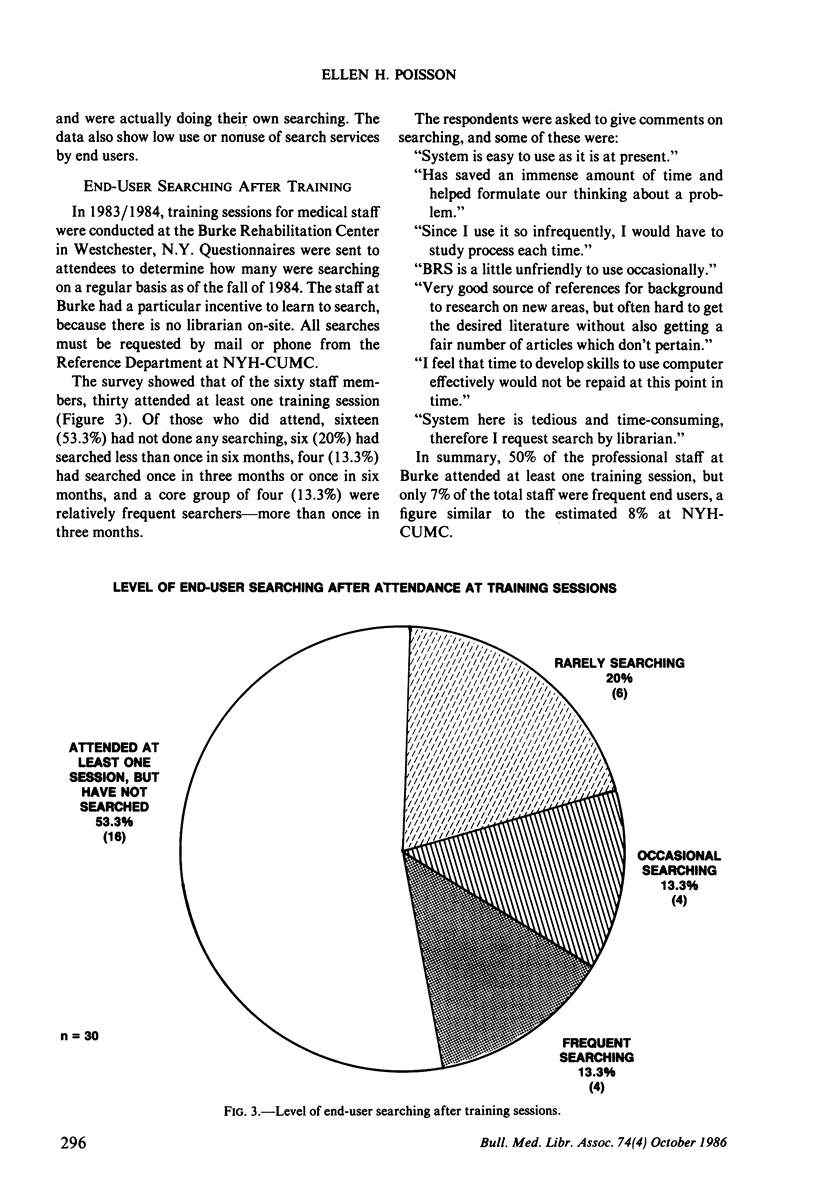Abstract
Investigation of end-user searching at the New York Hospital-Cornell University Medical Center (NYH-CUMC) revealed that 8% of the physicians surveyed were end users, 63% were interested in learning to search, and 29% were not interested. When training sessions were offered at the Burke Rehabilitation Center, an affiliated institution, 50% of the medical staff attended at least one class, but only 7% of the total staff became frequent searchers. Analysis of the precision and recall ratios of searches conducted by five end users at HYH-CUMC indicated that the best results were obtained by end users who had been taught to search by experienced librarian-searchers. The quality of end user searches did not appear to be affected by the "friendliness" of the systems used, the frequency of searching habits, or the length of time that an end user had been searching.
Full text
PDF






Selected References
These references are in PubMed. This may not be the complete list of references from this article.
- Broering N. C. The mini MEDLINE SYSTEM: a library-based end-user search system. Bull Med Libr Assoc. 1985 Apr;73(2):138–145. [PMC free article] [PubMed] [Google Scholar]
- Horowitz G. L., Bleich H. L. PaperChase: a computer program to search the medical literature. N Engl J Med. 1981 Oct 15;305(16):924–930. doi: 10.1056/NEJM198110153051605. [DOI] [PubMed] [Google Scholar]
- Northup D. E., Moore-West M., Skipper B., Teaf S. R. Characteristics of clinical information-searching: investigation using critical incident technique. J Med Educ. 1983 Nov;58(11):873–881. [PubMed] [Google Scholar]
- Olson P. E. Mechanization of library procedures in the medium-sized medical library: XV. A study of the interaction of nonlibrarian searchers with the MEDLINE retrieval system. Bull Med Libr Assoc. 1975 Jan;63(1):35–41. [PMC free article] [PubMed] [Google Scholar]
- Wyngaarden J. B. Nurturing the scientific enterprise. J Med Educ. 1984 Mar;59(3):155–161. doi: 10.1097/00001888-198403000-00001. [DOI] [PubMed] [Google Scholar]



